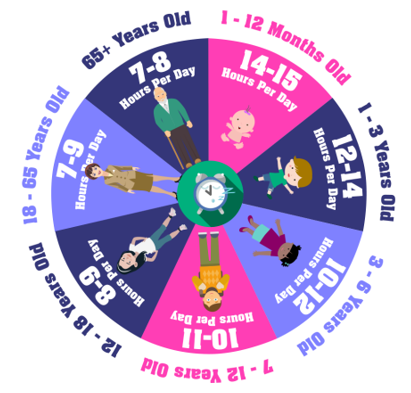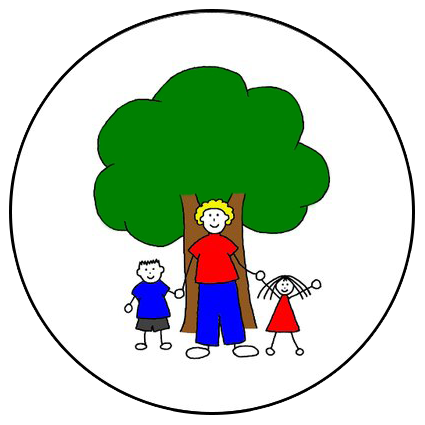Sleep
Top tips for getting a better night’s sleep:
- Keep fixed morning routines, try not to allow too late a lie in at weekends. A regular sleep/wake cycle helps maintain structure
- Avoid napping in the day
- Exercise more in the day as this promotes cardiovascular health and creates dopamine in the brain which aids sleep later in the day
- Take warm baths at night
- Do gentle stretches before bed
- Read a book before sleeping, write a to do list before bed
- Avoid smartphones or devices up to one hour before bed
- Make the room a relaxing place to be- avoid having a TV in the bedroom or other devices which emit a blue light
- Set the temperature to 18-24 degrees
How much sleep?
This chart comes from The Sleep Council as a guide to amount of sleep and ages. It’s important to note that the hours on the chart are a guide and it’s important to focus on sleep quality and establish a good routine. Just like adults, come children need more sleep and some children need less sleep.
Mrs Butler and Mrs Campbell can help with practical suggestions for bedtime routines, offer advice and can work with your child in school supporting what is in place at home.

Routine
Having a regular routine is one of the best ways to train our bodies to sleep well: children, teens and adults. This means going to bed and getting up at the same time (or as close to it as possible) everyday, even at weekends.
This isn’t something that will work for everyone- there has to be adjustments for those working night shift patterns! But where you can, lead by example.
A bed time routine is a set of activities that occur every night at the same time in the same order.
An example of a routine is:
- One hour before bed, turn off the T.V and other electronic devices and have ‘calm time’ e.g. colouring, drawing, playing with toys
- Have a drink and a snack (avoid caffeine)
- Up to bathroom for bath/wash, teeth and toilet
- Bedroom for story/massage/music
This is just an example of a bedtime routine- plan to include things that your child finds calming. The length of your routine will depend on your child. Ideally it would take 30 minutes but sometimes can be up to an hour.
Limit screen time
This is something you have no doubt heard before. Children and young people are more likely to delay sleep if they are caught up playing a video game, watching TV, or chatting to their friends. They are more likely to have their brains stimulated by this content, which makes it harder to sleep. This is because just 10 minutes of blue light exposure interferes with the brain’s production of the ‘sleepy’ hormone, melatonin. The Sleep Council’s ‘Good Night Guide for Children’, recommends turning off all screens off at least one hour before bedtime.
Reduce the focus on sleep
Just like adults, children can have trouble shutting their brains off for the night. Instead of increasing anxiety by insisting it’s time to sleep, consider focusing more on the idea of relaxation and calming your child’s body down.
Realistic bedtimes
Adjust when you start your bedtime routine gradually. For example, if your child is unlikely to fall asleep until 10:00pm, starting a bedtime routine at 6:30pm is going to be stressful for both you and your child, not successful.
Bathtime
Having a hot bath 1-2 hours before bedtime can be useful, as it raises the body temperature, causing you to feel sleepy as your body temperature drops again. Research shows that sleepiness is associated with a drop in body temperature.
Exercise
Regular exercise is a good idea to help with sleep but try not to do strenuous exercise in the 4 hours before bedtime. Morning walks are a great way to start the day feeling refreshed. Where possible, walking your child to school will help with this.
Pay attention to food
A healthy balanced diet will go a long way to improving overall health as well as sleep. An empty stomach would keep most of us awake, so a light snack can help. Eating a big meal can actually interrupt sleep. Chocolate and drinks such as tea, coffee and several fizzy drinks contain caffeine which can interfere with sleep. Make sure that these are not consumed 6 hours before bedtime.
The right space
A comfortable bed and bedroom are essential for a good night of sleep. It’s also important to ensure the temperature isn’t too warm- in fact a cooler (not cold) room is better!
Further support
Please let us know if you would like any support or even if you just need a listening ear. To speak to Mrs Butler or Mrs Campbell, please call 01952 386640 or approach them on the playground in the morning or at the end of the school day.
National Sleep Helpline 03303 530 541



